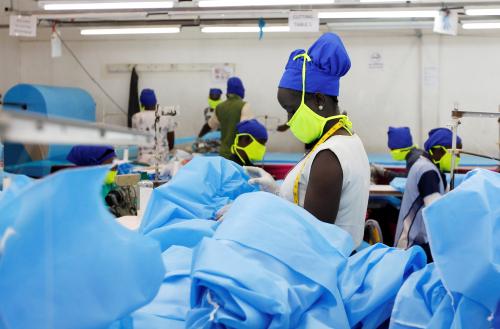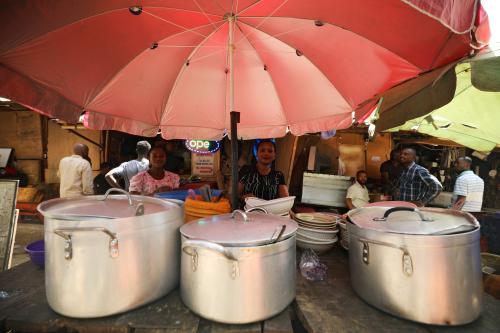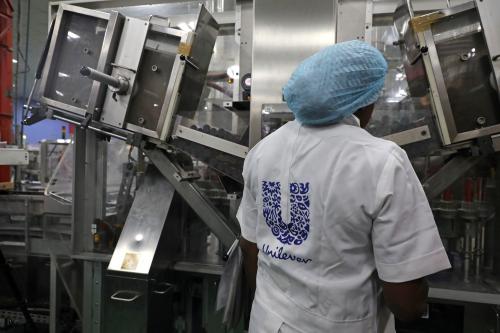Ethiopia, Eritrea, Sudan political updates
Ethiopia-Eritrea relations continue to thaw, as on Sunday, May 3, Eritrean president Isaias Afwerki, Foreign Minister Osman Saleh, and Presidential Advisor Yemane Ghebreab, visited Ethiopia, where they were received by Prime Minister Abiy Ahmed. During the two-day diplomatic visit, the leaders discussed bilateral cooperation and regional issues affecting both states, including the COVID-19 pandemic and the desert locust infestation. Afwerki and his delegation also visited several agricultural and water development projects in Ethiopia’s Oromia Regional State.
After two decades of hostility, Eritrean-Ethiopian diplomatic relations were revived in June 2018, when a peace deal was signed to formally end the countries’ 1998-2000 border war and to open borders between the countries. However, borders were again closed several months after the initial agreement; Ethiopia and Eritrea have yet to come to a formal agreement on their reopening.
Also in Ethiopia, the Tigray region has announced plans to hold regional elections in defiance of a nationwide postponement of voting due to the COVID-19 pandemic. Defending their decision, the region’s governing Tigray People’s Liberation Front (TPLF) said, “We are making preparations including the holding of a regional election in order to safeguard the rights of our people from chaos.” Ethiopia’s National Election Board has stated that the TPLF did not submit a request for a vote, and that only the National Election Board has the mandate to conduct an election.
In other regional news, on Monday, May 5, Sudan announced the appointment of its first ambassador to the United States in 23 years. Sudan’s foreign ministry stated that it had chosen veteran diplomat Nureldin Satti and that U.S. authorities had approved the nomination. The appointment follows a December announcement by U.S. Secretary of State Mike Pompeo, following Sudanese prime minister Abdalla Hamdok’s diplomatic visit to the U.S., that the two countries would exchange ambassadors. The U.S. has yet to appoint its ambassador to Sudan.
Still facing the COVID-19 threat, some African countries move further into lockdown while others begin to open up
On Wednesday, the World Bank announced it would lend Zimbabwe $7 million to fight the pandemic—despite the country being more than $1.2 billion in arrears to many multilateral development banks, technically making it ineligible for funding or debt forgiveness from global lenders, according to Reuters. Meanwhile, on Thursday, the United Nations dramatically increased its appeal for funding to support developing countries during the pandemic from $2 billion to $6.7 billion, warning that the wo xrst of the crisis is likely to hit many of the world’s poorest countries in three to six months.
In Tanzania, rumors are swirling that three of its members of parliament may have succumbed to the coronavirus, provoking the opposition Chadema party to call for a suspension of the legislative body and encourage its members to self-isolate for 14 days.
In Nigeria this week, authorities moved to ease restrictions on states and municipalities—including the 24-hour lockdowns in major cities Lagos and Abuja—and the country saw an immediate uptick in activity. While measures mandating people not to congregate in large groups, to maintain distance between themselves and other people, and to wear facemasks are still in place, authorities have struggled to enforce those rules. Now, businesses have been allowed to open, provided they decontaminate their workspaces, create the space to allow for social distancing, and offer hand sanitizer or handwashing. Lagos state has also announced plans to offer waivers to manufacturers and construction companies to stay open beyond current mandated hours, conditional on a “firm commitment from the applying company that it will make adequate and complete arrangements for the transportation of staff between their homes and places of work.” Meanwhile, FCMB Group Plc, a large financial services provider in Nigeria, announced it plans to restructure half of its loans as its clients struggle to repay their debt under falling oil prices, a devaluation of the naira, and continued economic challenges created by the COVID-19 pandemic.
Uganda, which had imposed some of the strictest lockdown measures in the region, also began easing its restrictions this week, after announcing only 97 confirmed cases and no deaths during the last 45 days of restrictions. While the country’s schools and international borders will remain closed and most private and public vehicles will not be allowed on the roads, businesses like hardware shops, restaurants, and wholesale stores will be permitted to reopen.
Meanwhile, in Sudan, authorities have moved to increase measures to enforce social distancing within the country, implementing a nationwide lockdown and deploying members of the Sudanese army and the Rapid Support Forces in Khartoum—which has been under a lockdown since mid-April—after the country saw a large uptick in cases earlier this week.
Lockdown measures implemented to stop the pandemic have been under pressure, with protests against the rules erupting in places like Malawi and Nigeria. Earlier this week, the Africa Centers for Disease Control and Prevention released a report that found that over two-thirds of people in the 20 African countries it surveyed between late March and early April said they would run out of food and water if they had to stay at home for 14 days.
Implementation of African Continental Free Trade Agreement delayed
The commencement of trading under the African Continental Free Trade Area (AfCFTA), which promises to be the largest free trade area in the world by number of countries, has been postponed from the intended start date of July 1 due to the COVID-19 pandemic, announced AfCFTA Secretary-General Wamkele Mene on May 1. The African Union (AU) has yet to confirm a new date for implementation. Despite the setback, Mene reiterated his optimism that the deal would eventually be completed, stating, “The political commitment remains, the political will remains to integrate Africa’s market and to implement the agreement as was intended.”
The proposed AfCFTA will not only promote the free trade of goods but also the liberalized movement of the area’s 1.3 billion inhabitants, and will cover a combined consumer business spending of $6.7 trillion. Fifty-four of the 55 members of the AU have signed the agreement after Nigeria and Benin signed on last summer, and 30 countries have ratified the agreement. Eritrea remains the only country in Africa to not sign the agreement.
UNECA estimates that the AfCFTA will increase intra-African trade by 52 percent within two years of implementation, while the IMF predicts that the AfCFTA will improve the standing of member countries in the Global Competitiveness Index and enhance their resilience to negative global shocks.
Similarly, Landry Signé and Colette van der Ven argue that the AfCFTA can help bolster Africa’s resilience to respond to future pandemics and improve access to essential products during such crises.






Commentary
Africa in the news: Ethiopia, Eritrea, Sudan, COVID-19, and AfCFTA updates
May 9, 2020